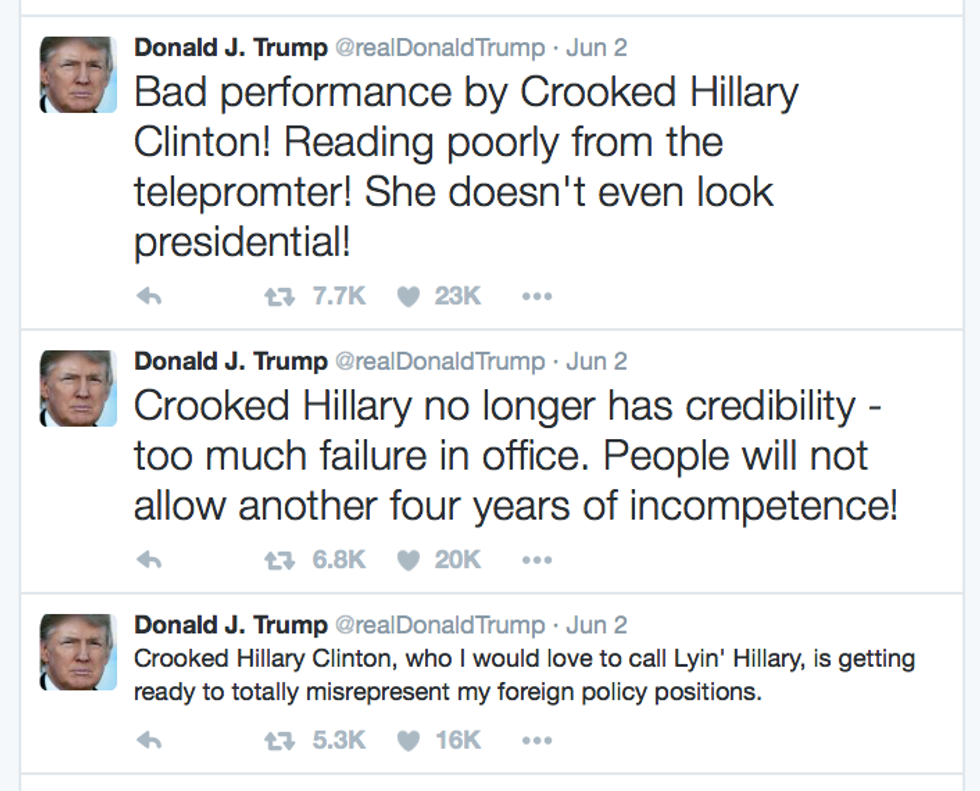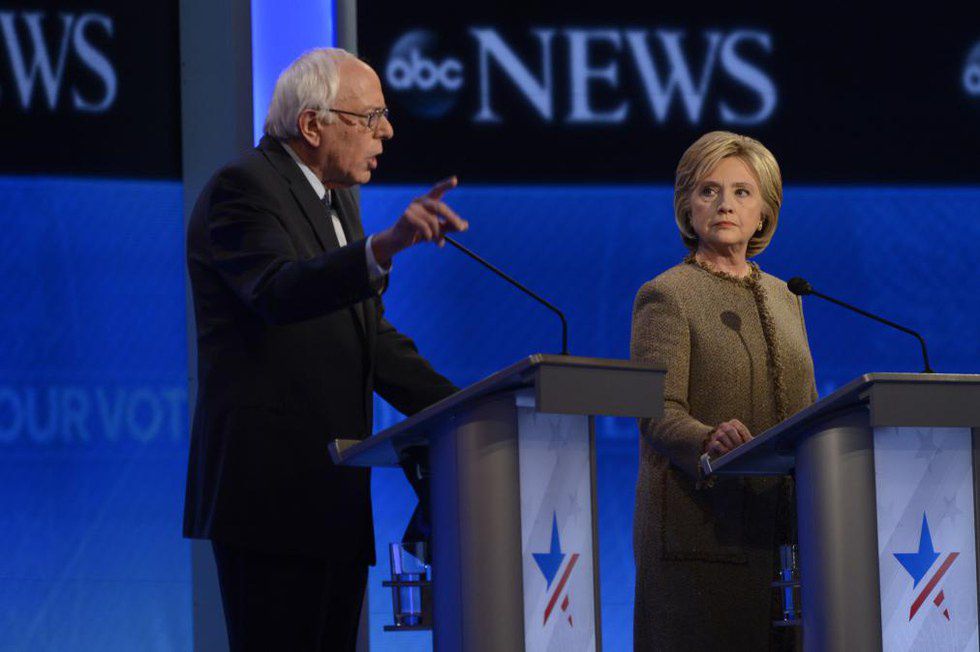Earlier this year, I met a dynamic and outspoken seven-year-old boy from Massachusetts named Nathan. When asked what he wanted to be when he grew up, he promptly responded, “I want to be the President of the country.” I thought it very endearing, especially given his optimistic nature, until later when I thought about how his attitude and positive outlook may shift as he grew and learned more about his occupation of interest.
It amazes me, some of the things that politicians bring up about their opponents --digging up past mistakes, unpopular voting choices or indiscretions that may have occurred over two decades ago and using them as legitimate reasons to antagonize them today. Since the election season has started, we have seen a multitude of old graves dug up -- Bill Clinton’s alleged past sexual assaults, Donald Trump’s Trump University scams, Hillary Clinton’s email scandals. Sure, some arguments are certainly valid reasons for concern -- but I question whether it is merited to politicize every poor choice an individual may have made in his/her 70-some-year lifetime.
Indeed, politics is a universe of its own. I cannot fathom any other professional field in which such practices would be deemed acceptable. Imagine if actors competing for an Academy Award campaigned to convince the public that the other candidates were unworthy, or Nobel Prize nominees tried to defame their opponents. In any other occupational field, these adults would be labelled as childish and unprofessional. In politics, it is justified through the age-old phrase, “Well, that's politics.” This boggles my mind -- why do we accept that? When has politics become synonymous with the public shaming of public servants? There is a clear difference between holding politicians accountable for their promises, and nicknaming them “Crooked Hillary.” It has become a classic excuse for malicious behavior -- allowing politicians to shamelessly bully and throw personal attacks at one another during election season, but then to brush it off and coexist later, justifying their past behaviors by saying, “Oh, it was just politics.”
What exasperates me is that these individuals are meant to symbolize the greatest leaders of the country. They set the example for young Nathan and all the other youth in America. When these children think about leadership, what higher office comes to mind than that of the President of the United States? As the internet era expands, so does our means to instantaneously disseminate information and comments made in debates, interviews and speeches. But in many cases, the media gears its focus towards speculations, scandals and accusations made by one candidate or supporter to another, rather than legitimate issues. It is this sort of material that children are more likely to see, and thus it is this that sets the norm for accepted behavior. What will Nathan think when he connects the fact that his President is the same woman that he saw on TV calling her opponent a bigot? Or the same man who posted a torrent of nasty tweets about his? I often wonder if I am the only one who feels embarrassed when the moderator of a presidential debate has to tell the candidates, “If you keep yelling over each other, the viewers won’t be able to understand you.” It sounds like a kindergarten teacher telling two bickering students to behave themselves.
But it is not just the presidential hopefuls who are to blame -- we are just as much at fault. The candidates get away with the less-than-sophisticated comments and behaviors becausewe accept them. In many cases, we applaud and play into them by cheering “Hillary for Prison” or “Dump Trump!" If politics could feel less like a race to see who can find the most dirt on his or her opponent and exploit it most advantageously, and if the focus were exclusively dedicated to policy issues as it should be, then the skepticism and lack of trust associated with politics would be less prominent, and we would all have less to complain about. This is an ideal world, one many would deem to be unrealistic, but evidently also one that many of us desire. This is a undoubtedly a large reason why Bernie Sanders, who ran on a campaign with a promise to never run a negative ad and to reject all donations from super PACs, was able to gain traction and popularity so rapidly. Despite this, it appears that Sanders will not secure enough delegates to win the Democratic nomination. On the other hand, if we go to the Republican side of the primary race, Trump was able to clinch the Republican nomination with a campaign most notorious for its belligerent comments, unprecedented policy proposals, and attacks against the media and other GOP candidates. It may be comical when he mocks Jeb Bush for his low energy or calls Ted Cruz a “basket case," but is it really a productive use of America’s time? It seems to me like politics, with its continuous succession of debates featuring squabbling adults and increasingly prevalent (mis)use of Twitter, has become the new entertainment industry -- and many Americans seem to prefer it that way.





















